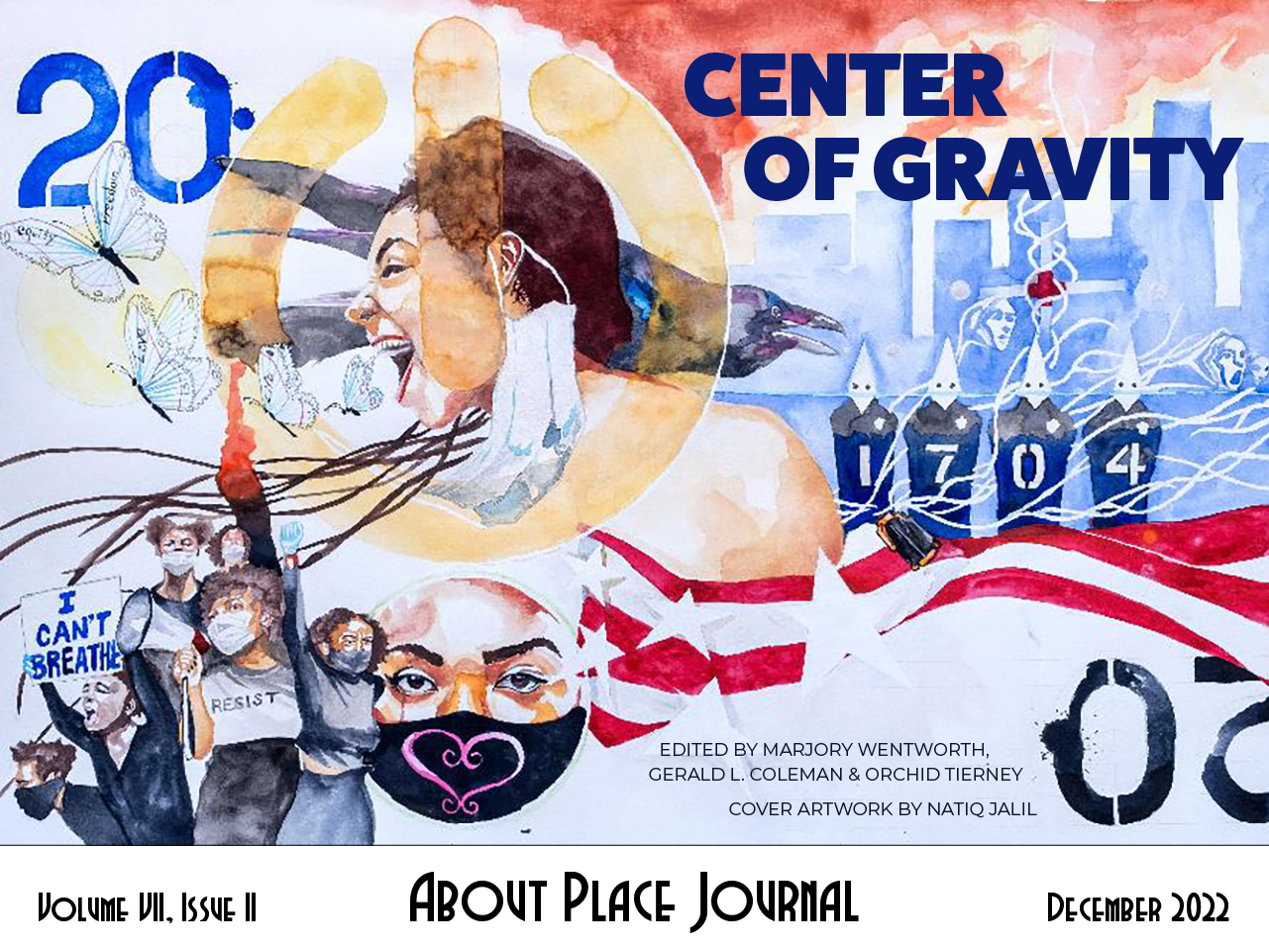In the seed of all touch is a need.
A few years ago, Martin Bourque stuck a GPS transponder into a bale of plastic and paper shipped from the Ecology Center in Berkeley, California. Bourque directs the center, which runs one of the oldest curbside recycling programs in the U.S. He did not know, in the murky network of global trade, where the items collected for recycling ended up.
“What we found confirms some of our worst nightmares,” he told an NPR reporter. He tracked the waste to a town in China, where residents described a canyon of garbage that could not be recycled, and plastic clogging local farm fields.[1]
That was in 2016. In 2018, declaring it no longer wanted to be “the world’s garbage dump,” China banned imports of plastic scrap.[2] Global trash brokers pivoted, shipping waste to nations often with less ability to manage it, including Cambodia, Kenya, Malaysia, Thailand, Turkey, and Vietnam.[3]
In 2019, 187 countries agreed to restrict the international trade in plastic waste. Shipments would be allowed only with the prior written consent of the importing country. The U.S. did not ratify this agreement. As a result, it should be banned from exporting waste to most of the world. But after the agreement went into effect in January 2021, plastic exports from the U.S. increased.
The U.S. scrap industry’s spokesperson insisted to the New York Times that the shipments are legal, but international agreements can be difficult to enforce. “As soon as the shipments get on the high seas, it’s considered illegal trafficking. And the rest of the world has to deal with it,” said the leader of a nonprofit working to stem the tide of hazardous waste.[4]
Violence vibrates in the word “touch” from its birth. Its root is from the Latin toccare, “to knock or strike.” Beauty is here also. The word may be imitative in origin—to strike as in a bell. A word resounding through centuries of air. Touch travels far.
To be violent, a touch need not be a strike. Look at the marks. A beige slick of plastic bags covers a tropical beach. Toxic smoke pours from chimneys in a town where people burn waste plastic for cooking because it is cheaper than wood fuel. Two humans scale a mountain of gaudily colored trash to collect anything of value. Among the sickening mass are familiars: a Dasani water bottle, a Trader Joe’s package, a plastic AARP card with an individual’s name on it.[5]
Touch is the oldest sense—the first that evolved—and it is the first to develop in utero. Skin forms from the same cells that become the brain and spinal cord. One scientist wrote that the skin could be considered an external nervous system.[6]
Touch has been degraded in Western philosophy as abject, the animal sense, as opposed to sight, which is the sense of rationality and intellect. “Oh, I see,” means that I understand. I know. To see is proof, belief. Touch is murkier; it happens in the body. Receiving the knowledge that touch provides requires a person to experience their own physical being. As I feel you, I also feel me.
An item I know, one that touched my life, let’s say the package for some peanut-butter-filled pretzels (indulgent, but still with a gloss of health—they have protein!); or that AARP card that, I admit, I too received and, wrinkling my nose, discarded inappropriately into the recycling—not wanting to confront my aging or the laughable impossibility of “retiring.” These objects passed through my fingers. Now, I can imagine that they touch the green gloved hand of a person wearing a cobalt blue shirt and a red hair clip, identified as a migrant worker sorting waste at the Thaiplastic Recycle Group plant outside Bangkok.[7]
Human touch is exquisitely sensitive—it can distinguish between two materials that look identical and differ only in a single layer of molecules. The surface area created by the ridges in human fingers—unique to each individual—enable this minute discernment. But touch is not only about navigating the physical environment. The act of touching lights up a part of the brain responsible for interpreting the feelings of others. Touch enables humans to “feel with” one another.[8]
Touch, along with taste, has been considered the sense that requires direct contact. For touch to happen, two bodies must be in closest proximity. But the Anthropocene stretches our reach nearly beyond the limits of imagination. Humans living one million years from now will feel our mark. And the planet is small in our hands. Humans touch every corner of Earth; every corner of Earth touches us.
Some touching in the Anthropocene is consensual. Much is not. Virtually every person living in industrial societies carries in their body chemicals found in plastics, pesticides, flame retardants, and air pollution. These toxins touch and mix with our own molecules. Infants come into the world with dozens of these chemicals already circulating in their bloodstreams, absorbed unwittingly from the mother’s placenta.[9]
Skin hunger is a medical condition, also known as touch starvation. Humans, like worms, rats, monkeys, and many other animals, require touch for proper development. Touch regulates growth hormones, digestion, and the formation and functioning of the immune system. It is possible to read terrible stories of orphanages where children were provided for in every way but touch. They grew to only half the size expected and could not walk on weakened legs. Their mental development also was delayed. In the same way that narrowed tree rings indicate years of drought, human bones show lines of slower growth during times of deprived touch.[10]
If to be human is in some foundational way to be relational, to be in relation with others, then touch makes our very humanity possible.
But touch can also make us monsters. People in the U.S. and around the world choke and die from the waste of the wealthy. It is easy for me, living in privilege, to ignore this, to ignore the pollutants circulating through my own cells, touching me in the most intimate of ways. I can let that annoying plastic AARP card drop from my grasp without another thought. This is the easeful amnesia that makes global capitalism possible. I am one hand of the fossil fuel and petrochemical industries, leaving violent prints all over Earth.
It is harder to stop. To be still and allow into my body an awareness of my own distant touch, and how it reverberates. It is harder, and critical to my own humanity. When I acquiesce to the ignorance that global capital requires, I agree to my own isolation. I abandon those who spend their lives struggling to protect their communities from the violence of waste colonialism. This disconnection serves the status quo, which depends on the willed ignorance of the wealthy and on keeping the disempowered in the dark. I read accounts of people in Cambodia and the Philippines who had no idea the plastic drowning them came from outside their own countries.[11]
When we touch each other, we know. That is the hard part. Knowing makes the status quo intolerable. The structures of capital, the basis for the global economy, must change. Wealthy corporations can no longer escape responsibility for producing waste that will last forever. This level of change may feel daunting, impossible. Capitalism structures nearly every human interaction. But then, as Ursula LeGuin pointed out in her famous speech at the National Book Awards, so too did the divine right of kings, and now that is unimaginable.
“Any human power can be resisted and changed by human beings,” said LeGuin. That requires us first to be human. And that means awakening, fully, to the ways we touch each other.[12]
[1] Christopher Joyce, “Where Will Your Plastic Trash Go Now That China Doesn’t Want It?” National Public Radio, March 13, 2019: https://www.npr.org/sections/goatsandsoda/2019/03/13/702501726/where-will-your-plastic-trash-go-now-that-china-doesnt-want-it.
[2] Hiroko Tabuchi and Michael Corkery, “Countries Tried to Curb Trade in Plastic Waste. The U.S. Is Shipping More,” New York Times, March 12, 2021: https://www.nytimes.com/2021/03/12/climate/plastics-waste-export-ban.html.
[3] Erin McCormick, et al., “Where does your plastic go? Global investigation reveals America’s dirty secret,” The Guardian, June 17, 2019: https://www.theguardian.com/us-news/2019/jun/17/recycled-plastic-america-global-crisis.
[4] Hiroko Tabuchi and Michael Corkery, “Countries Tried to Curb Trade in Plastic Waste. The U.S. Is Shipping More,” New York Times.
[5] “Where Will Your Plastic Trash Go Now,” National Public Radio.
[6] Tiffany Field, Touch (Cambridge: MIT Press, 2014), 89.
[7] “Where does your plastic go?” The Guardian.
[8] Field, Touch, 89; Megan McCluskey, “The Coronavirus Outbreak Keeps Humans from Touching. Here’s Why That’s So Stressful,” Time, April 10, 2020: https://time.com/5817453/coronavirus-human-touch/.
[9] Damian Carrington, “Toxic air pollution particles found in lungs and brains of unborn babies,” The Guardian, October 5, 2022: https://www.theguardian.com/environment/2022/oct/05/toxic-air-pollution-particles-found-in-lungs-and-brains-of-unborn-babies.
Susanna D. Mitro, et al., “Cumulative Chemical Exposures During Pregnancy and Early Development,” Curr Environ Health Rep. 2015 Dec; 2(4): 367–378. doi: 10.1007/s40572-015-0064-x: https://www.ncbi.nlm.nih.gov/pmc/articles/PMC4626367/.
[10] Field, Touch, 68.
[11] Erin McCormick, et al., “Where does your plastic go? Global investigation reveals America’s dirty secret,” The Guardian, June 17, 2019: https://www.theguardian.com/us-news/2019/jun/17/recycled-plastic-america-global-crisis.
[12] Ursula LeGuin, acceptance speech for National Book Foundation Medal for Distinguished Contribution to American Letters, November 19, 2014: https://www.ursulakleguin.com/nbf-medal.


